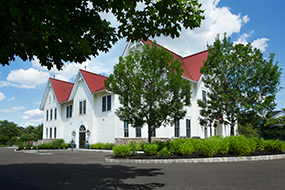Have you ever used your cell phone to record audio, video, or even taken a picture, without the permission of the subject of the captured image or sound? Whether one has a right to make these images, or even if the making of them is a crime, is the subject of several recent court cases in Pennsylvania .
#1 – Smartphone Recorded Conversation and the Wiretap Act
A recently published Pa Appellate Court (Superior Court) opinion ruled that a man who used the “voice memo” app on his smartphone to record a conversation with his boss should be criminally charged with violation of the Wiretap Act, despite the fact that the relevant section of the Wiretap Act was enacted before the smartphone technology became available.
The individual was charged after he recorded a conversation with his boss, during a meeting, with his iPhone’s “Voice Notes” app. It is a 3rd degree felony to acquire communication, without consent of the other party, through the use of any electronic device, per the Wiretap Act. Interestingly, there is an exception in the statute for a communications obtained by telephone. The court reasoned that the telephone exception did not apply because the app was not being used as a phone at the time of the recording. See Commonwealth v Smith, Opinion by Judge Paula Francisco Ott, Feb 19, 2016.
#2 Filming the Police
In another case, a Federal Judge in the Eastern District of Pa ruled that citizens do not have a 1st Amendment right to film police officers when there is no misconduct occurring. In this case 2 Philadelphia citizens filed suit against the City of Philadelphia because their cell phones were confiscated by the police after they photographed or filmed police activity or had been barred from doing so by police.
Neither citizen had alleged that the police were doing anything improper, merely what was being filmed or photographed was “interesting.” The Philadelphia citizen’s suits alleged that their 1st amendment rights had been violated. The 1st Amendment protects Freedom of Speech.
The Court held that the citizens were required to show that they had engaged in constitutionally protected conduct and refused to create a new 1st Amendment right based solely on “observing and recording” without expressive conduct as well. What this means is that, pursuant to this Court’s decision, a citizen cannot claim an absolute right to randomly take photos of or video governmental conduct without it being coupled with an action or words that affect constitutional rights of citizens. (i.e. you have a 1st Amendment right to film the beating of Rodney King, but not a group of police simply standing by a Dunkin Donuts Shop). See Geraci v. City of Philadelphia and Fields v. City of Philadelphia, Opinion by U.S. District Judge Mark Kearney.
In a NATIONAL case of interest, the reach of the Federal Government, and its ability to encroach upon privacy interests, is being fought by Apple, Inc.
#3 Apple and the Federal Government
Apple is in a fight with the Federal Government over a Federal Judge’s Order that requires it to design a software system, that presently does not exist, to defeat a security feature on the phone that erases data after 10 consecutive unsuccessful passcode entries.
The case arises from the FBI’s failure to unlock the phone of Syed Farook, who died in a gun battle with police after he and his wife killed 14 people in a shooting spree authorities say was motivated by terrorist ideology.
The Federal authorities and the Court used the All Writs Act, a rarely used 18th century law that gives courts broad discretion to issue orders to assist in ongoing investigations. This Act was used, to legally support the unprecedented order compelling a private company to utilize its own resources and intellectual property to design and make a product, that arguably could be used by law enforcement in other cases.
Apple is resisting the order arguing that the government is asking it to create a “back door” to the iPhones or a “hack” to the company’s encryption, arguing that such creation could be used in other instances to violate its customer’s privacy interests.
Tony Baratta is a trial attorney in Huntingdon Valley, PA who represents clients who have been seriously injured including due to medical mistakes. Tony is the founding partner of Baratta, Russell, & Baratta and on the board for the Philadelphia VIP. Tony is a Nationally Certified Civil Trial Advocate, AV Rated Preeminent by Martindale-Hubbel and a member of the Pennsylvania Brain Injury Association (BPIA). He is also a member of the Million Dollar Advocates Forum for trial attorneys and voted one of Philadelphia’s Super Lawyers 2008-2015.

